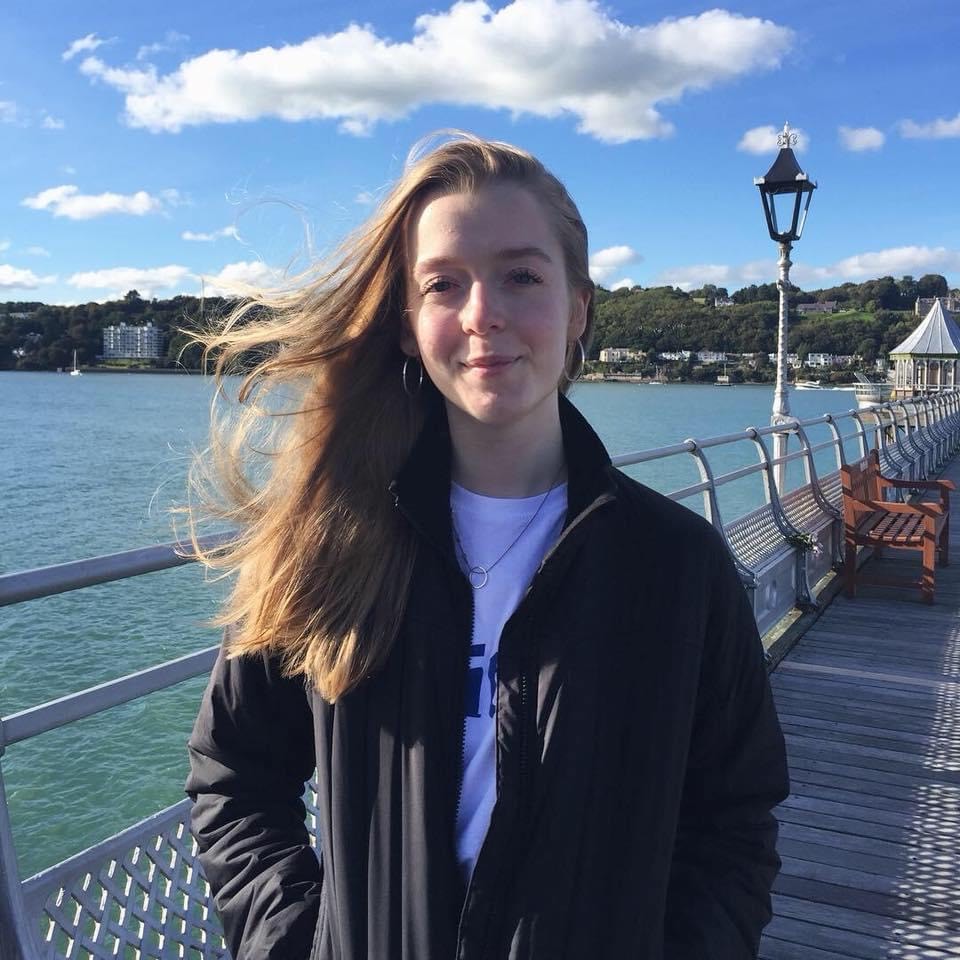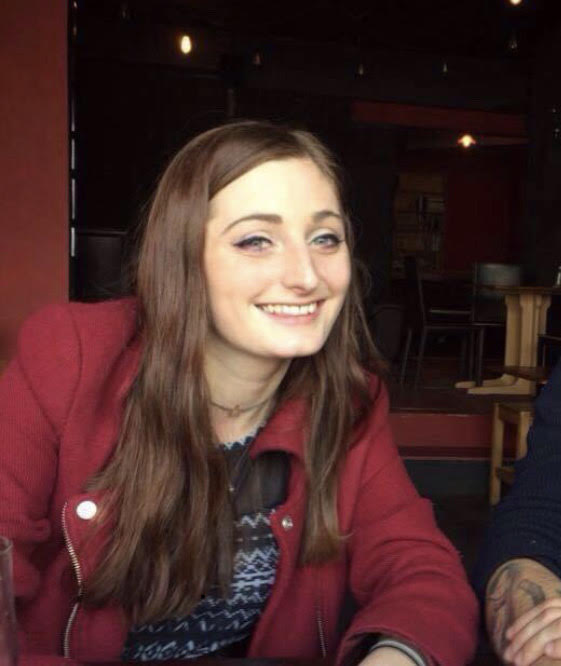Bath bombs, Lego sets and family legacies - there are many different routes into teacher training.
And here three new students on a Postgraduate Certificate in Education (PGCE) course at Liverpool Hope University share their own personal journeys as they begin a new career in education.
Hope has a proud history of training teachers of the future for the rigours of the classroom, whether that’s for Primary or Secondary schools.
And while beginning your very first teaching placement during a pandemic is not without its challenges - as these students have discovered - there are opportunities aplenty, too.
Read these accounts to find out more:

(Esther Hulme, above)
“It’s daunting and there are obviously some challenges, but I’m really enjoying it.”
Sometimes teaching is just in the blood.
Esther Hulme, a 22-year-old from Penrith, Cumbria, comes from a long line of educators - her parents are both teachers, her grandparents were teachers, and a cousin are teachers.
And despite learning to ply her trade in the midst of a pandemic, Esther says she’s relishing it.
She’d originally studied for a degree in Philosophy and Religion at Bangor University before signing up to the PGCE in Secondary Religious Studies at Hope.
She says: “I come from a family of teachers - my dad is in his 38th year of teaching and my mum taught for 15 years
“I’d always thought, ‘Nah, I’m not going to do that. Teaching isn’t for me’.
“But all that changed at university. Every time I ever gave a presentation at university people would say things like, ‘Wow, you need to be a teacher’. And in the end the idea really appealed.”
Esther is currently on a placement at Liverpool College, and adds: “To begin teaching in a pandemic is slightly daunting and there are obviously some challenges, but I’m really enjoying it.
“In some ways it’s also a challenge to teach Religious Education in general. Ten years ago, RE was excluded from the English baccalaureate (EBacc) and some schools might perhaps pay less attention to it now than in years gone by.
“But, personally speaking, my RE teachers were the best I ever had. They were fantastic.
“And through my future career, I hope to change the way that RE is perceived.”

(Katie Moncaster, above)
“I didn’t want to be sat in the archives on my own, I wanted to be in amongst people”
Routes into teaching come in all shapes and sizes - a bit like Lego blocks.
And it was while working in The Lego Store in Liverpool that Katie Moncaster, 26, realised she really enjoyed interacting with children.
She’d previously completed both an undergraduate degree and Masters in History at the University of Liverpool.
But through her part-time job she realised the academic life wasn’t for her.
Katie, from Bradford, explains: “While working in The Lego Store we had lots of teenagers coming in and being really creative. And I had a great time talking to them, discussing their ideas, finding out what sorts of things they were interested in, and generally interacting with them.
“And that experience made me realise how much I really like working with children, which started me thinking about doing a PGCE.”
During her undergraduate and Masters, Katie studied a really varied breadth of topics - specialising in both how Chinese medicine is seen in the West, as well as gendered violence towards women.
Speaking about how she’s able to carry that into her PGCE, she adds: “I’ve always been interested in so many different areas. And it’s nice to have the opportunity now to focus on so many different topics, teaching History across different years groups.
“In one lesson I can be teaching about the Romans, and in the next I’m teaching about the Battle of Britain.”
Katie’s first teaching placement has been with Notre Dame Catholic College, Everton.
And while the pandemic has caused disruption and uncertainty when it comes to teaching norms, Katie sees the challenge as an opportunity.
She adds: “Facing this now, so early in my career, will hopefully hold me in really good stead for the rest of my time in the classroom.
“If I can handle this, I can handle anything. We’re having a different experience, for sure, but the staff in the school are coping so well that it’s been great for us as trainees to be able to learn from these important role models.
“It’s actually been really helpful.”
“It’s about expressing your enjoyment of science - and that’s what I always wanted to do.”
Gina Washbourn’s career as a high-flying organic chemist was blossoming.
She’d completed a PhD in Medicinal Chemistry at the University of Liverpool in 2019, and collaborated on various NHS projects, worked with big pharmaceutical companies, and researched drugs to combat ‘Cryptococcus neoformans’ - a nasty infection that can be passed to humans through bird droppings and unwashed fruit.
But, ultimately, 27-year-old Gina soon realised that the thrill of sharing scientific ideas and principles actually trumped working to develop them.
Which is why, having gained experience teaching at the University of Liverpool International College, she’s now opted to study for a PGCE in Secondary Science with a specialism in Chemistry.
Gina, from Skelmersdale, Lancs, explains: “I went into the PhD knowing that I like scientific research, and I like chemistry, but I always had teaching in mind as an end goal.
“I found that I enjoyed explaining science with people more than I actually enjoyed physically doing the science myself.
“Going to conferences, giving presentations, interacting with people about science and sharing scientific knowledge and ideas I was what I enjoyed most.
“Through teaching you’re expressing that fundamental enjoyment. And, really, that’s what I always wanted to do.”
Gina ended up teaching around 12 hours a week at the International College, and watched her students thrive.
She adds: “I was teaching my own clases, planning my own lessons, creating my own resources, and I think this has been really good preparation for the PGCE.”
And is Chemistry one of the ‘fun’ subjects to teach?
Gina laughs: “Definitely! One of the things I used to do with my classes in the College was to make bath bombs with them.
“It teaches them proper chemistry principles, but it’s also great fun.
“I’d hate to know how many bath bombs I’ve made in the course of outreach and teaching sessions. It must be in excess of many hundreds. And the novelty of that hasn’t worn off.”



